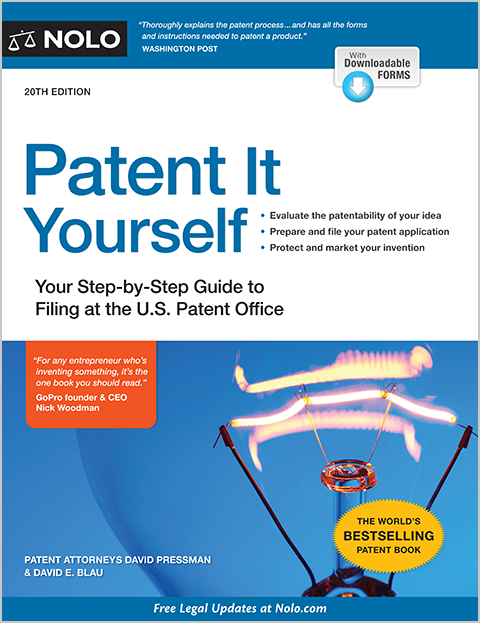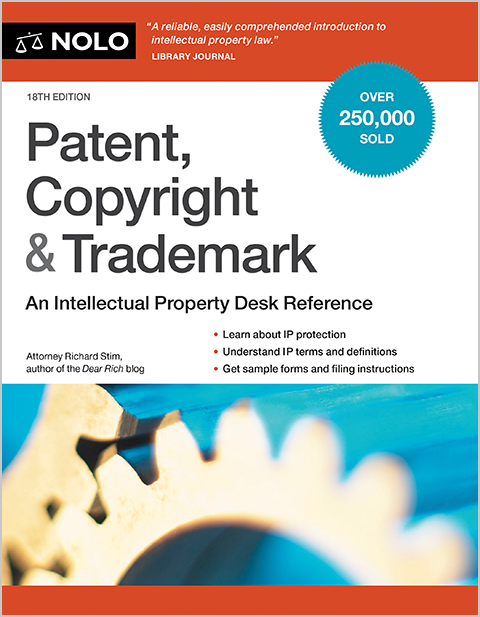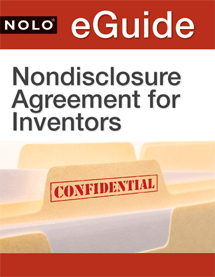Google’s search algorithm and Coca-Cola’s syrup recipe are two famous trade secrets. But what counts as a trade secret, how are these secrets protected, and what happens when they’re stolen?
If your company has created something of value, you probably want to protect it. Trade secret law, a branch of intellectual property law, protects a business's secrets and allows companies to safeguard information they've developed.
Read on to find answers to frequently asked questions about how trade secrets can protect businesses.
Frequently Asked Questions
- What is a trade secret?
- What types of information can trade secrets protect?
- What rights do trade secrets give you?
- How can a business protect its trade secrets?
- What is misappropriation?
- Is stealing trade secrets a crime?
- How can a business enforce its rights if someone steals or improperly discloses confidential information?
- What is the "inevitable disclosure" doctrine?
- Which states have adopted a version of the Uniform Trade Secrets Act?
- How are trade secrets protected in New York?
What is a trade secret?
Trade secrets are a form of intellectual property. According to the law of most U.S. states, a trade secret can consist of any formula, pattern, physical device, idea, process, or compilation of information that meets all three elements:
- the information has economic value, either actual or potential, because it's not generally known to others
- others would gain value from the information being disclosed to or used by them, and
- reasonable efforts have been made to protect the secrecy of the information.
Some examples of potential trade secrets include:
- the formula for an energy drink
- survey methods used by professional political pollsters
- recipes for cookies
- a new invention for which a patent application hasn't yet been filed
- marketing strategies
- manufacturing techniques
- customer lists, and
- computer algorithms.
Unlike other forms of intellectual property, such as patents, copyrights, and trademarks, which generally require registration in order to be fully effective, trade secrets are essentially a "do-it-yourself" form of protection.
You don't register with the government to secure your trade secret; you most simply keep the information under wraps. Trade secret protection lasts for as long as the secret is kept confidential without any statutory limitations period. However, once a trade secret is made available to the public, the trade secret protection ends.
What types of information can trade secrets protect?
Copyright, patents, and trademarks are fairly well-known forms of intellectual property protection. But trade secrets are another extremely useful form of protection that often protects valuable technical or confidential information. Here's a sampling of what trade secrets can protect:
- Ideas that offer a business a competitive advantage, thereby enabling a company or individual to get a "head start" on the competition. These competitive advantages might include, for example, an idea for a new type of product or marketing approach.
- Competitors' knowledge that a product or service is under development and its functional or technical attributes including, for example, the workings of a new software program.
- Valuable business information such as marketing plans, cost and price information, and customer lists.
- So-called "negative know-how," meaning information learned during the course of research and development on what not to do or what doesn't work optimally. Often, this information is almost as valuable as the products or techniques that do work.
- Virtually any other information that has some value and isn't generally known by competitors. This information might include, for example, a list of customers ranked by the profitability of their business.
What rights do trade secrets give you?
A trade secret owner can prevent the following groups of people from copying, using, or benefiting from its trade secrets or disclosing them to others without permission:
- People who are automatically bound by a duty of confidentiality not to disclose or use trade secret information, including any employee who routinely comes into contact with the employer's trade secrets as part of the employee's job. This type of employee would include, for example, a member of the Board of Directors or leadership team of a company.
- People who obtain a trade secret through improper means such as theft, industrial espionage, or bribery.
- People who learn about a trade secret by accident or mistake, but had reason to know that the information was a protected trade secret.
- People who sign nondisclosure agreements (sometimes called "confidentiality agreements" or "NDAs") promising not to disclose trade secrets without permission from the owner.
However, you can't use trade secret laws to stop people from using your trade secrets if they discover the information independently. In other words, people who learn a trade secret without using illegal means or without violating agreements (such as NDAs) can't be prevented from using that information for their own means. For example, it's not a violation of trade secret law to analyze (or "reverse engineer") any lawfully obtained product and determine its trade secret.
Imagine, for example, that XCEL Glue is a popular adhesive that's made from a trade-secret-protected formula. Phil, a chemist, analyzes the contents of XCEL, determines its composition, and recreates the formula. Phil can legally use this information to make and sell his own glue. Similarly, Phil could attempt to determine XCEL's customer list based on publicly available information, such as the names of people who follow XCEL on Facebook.
How can a business protect its trade secrets?
Simply calling information a "trade secret" will not make it so. A business must affirmatively behave in a way that proves its desire to keep the information secret. This means taking certain precautions over secrecy. Some companies go to extreme lengths.
The formula for Coca-Cola (perhaps the world's most famous trade secret) is kept locked in a bank vault that can be opened only by a resolution of the Coca-Cola Company's board of directors. Only two Coca-Cola employees ever know the formula at the same time; their identities are never disclosed to the public and they're not allowed to fly on the same airplane.
Fortunately, extraordinary trade secrecy protection measures are seldom necessary. Although you should take reasonable precautions to protect any information you regard as a trade secret, you don't have to turn your office into an armed camp to do so.
Sensible precautions include:
- marking documents containing trade secrets as "Confidential"
- locking trade secret materials away after business hours
- maintaining computer security, and
- providing access to secret information only to people with a reasonable need to know.
The most common and most effective way to protect trade secrets is through the use of NDAs. Courts have repeatedly reiterated that the use of NDAs is the most important way to maintain the secrecy of confidential information. Learn more about how to draft an NDA, or create an NDA online.
What is misappropriation?
Every state has a law prohibiting the theft or disclosure of trade secrets. Most of these laws are derived from the Uniform Trade Secrets Act (UTSA), a model law drafted by legal scholars. A list of states that have adopted some version of the UTSA is provided at the end of this FAQ.
Under the UTSA, "misappropriation" is defined as acquiring a trade secret through "improper means" or from someone who has obtained the secret through improper means. Improper means can be:
- theft
- bribery
- misrepresentation
- espionage, or
- a breach of duty to maintain the secrecy of the trade secret.
Misappropriation can also apply to someone who obtained a trade secret through improper means who discloses or uses the trade secret without consent. For example, an ex-employee who spills company secrets to a rival would likely have committed trade secret misappropriation.
Many states have adopted the "reason to know" standard laid out in the UTSA. For instance, California and New Hampshire define "misappropriation" as acquiring, disclosing, or using a trade secret that a person knows or has reason to know was obtained through improper means. (Cal. Civ. Code § 3426.1 (2023); N.H. Rev. Stat. § 350-B:1 (2023).)
In other words, even if a California or New Hampshire company was unaware it possessed stolen trade secrets, it can still be found to have misappropriated the trade secrets if it should have known the secrets were stolen.
Is stealing trade secrets a crime?
Intentional theft of trade secrets can constitute a crime under both federal and state laws. The most significant federal law dealing with trade secret theft is the Economic Espionage Act of 1996 (EEA).
The EEA gives the U.S. Attorney General sweeping powers to prosecute any person or company involved in trade secret misappropriation. You can be punished for intentionally stealing, copying, or receiving trade secrets. Penalties for violations are severe:
- Individuals can be fined up to $500,000, and
- corporations can be fined up to $5 million.
A violator can also be sent to prison for up to 10 years. The government can take and sell any property used and proceeds made from the theft. (8 U.S.C. §§ 1831-1832 (2023).)
The EEA applies not only to thefts that occur within the United States but also to thefts outside the U.S. For example, if the thief is an American citizen or corporation, or if any part of the theft occurred in the U.S., the EEA can apply. Additionally, if the theft is performed on behalf of a foreign government or agent, the corporate fines can double and jail time can increase to 15 years.
Many states have also passed laws making trade secret theft and misappropriation a crime. For example, in California, it's a crime to acquire, disclose, or use trade secrets without authorization. Violators can be fined up to $5,000, sentenced to up to one year in jail, or both. (Cal. Penal Code § 499c (2023).)
How can a business enforce its rights if someone steals or improperly discloses confidential information?
A trade secret owner can enforce rights against someone who steals confidential information by asking a court to issue an order (an injunction) preventing that person from further revealing or using the secrets. A trade secret owner can also collect damages for any economic injury or losses they suffered because the trade secret was improperly taken and used.
Here are some examples of incidents that can lead to trade secret misappropriation lawsuits:
- Sarah, a former employee of C-com, discloses C-com trade secrets to her new employer (whether orally or in writing).
- Mary hacks her way into the network for a computer company and downloads the specs for a new silicon chip. She sells the information to a rival computer company.
- Sheldon is a software programmer who works as an independent contractor for Diskco. Sheldon signed an NDA with Diskco but later discloses Diskco's secrets to a rival.
Typically, to win a misappropriation lawsuit, a trade secret owner must show that:
- the information has commercial value, and
- the information really is maintained in secrecy.
In addition, the trade secret owner must generally show that the information was either improperly acquired by the defendant (if the defendant is accused of making commercial use of the secret) or improperly disclosed by the defendant (if the defendant is accused of leaking the information).
You'll need to file your misappropriation lawsuit within a certain period. Otherwise, you'll lose out on your ability to stop the disclosure of your trade secrets and receive money damages. States have deadlines—called "statutes of limitations"—for when you must take legal action.
For example, in California and New Hampshire, you must file a misappropriation lawsuit within three years after you discovered or should have discovered that the misappropriation occurred. (Cal. Civ. Code § 3426.6 (2023); N.H. Rev. Stat. § 350-B:6 (2023).)
Other states will have their own deadlines.
Court Injunctions in California and New Hampshire
For example, in California and New Hampshire, you can ask the court to stop or prevent actual or threatened misappropriation. The court-issued injunction can last as long as necessary to eliminate any commercial advantage that the misappropriation would create.
In exceptional circumstances, the court can issue an injunction that makes the person or company who uses the misappropriated trade secret pay a reasonable royalty to the trade secret owner. An exceptional circumstance can be a theft that's so bad that the court order would be meaningless.
(Cal. Civ. Code § 3426.2 (2023); N.H. Rev. Stat. § 350-B:2 (2023).)
Money Damages in California and New Hampshire
California and New Hampshire have similar misappropriation laws related to how much victims of trade secret theft can recover. In both states, a victim of trade secret theft can be awarded money damages that measure either:
- the actual loss attributed to the theft, or
- the profits (or "unjust enrichment") acquired by the trade secret thief.
In egregious situations, a California or New Hampshire court can award punitive damages (to punish the thief) up to twice the amount of any award. (Cal. Civ. Code § 3426.3 (2023); N.H. Rev. Stat. § 350-B:3 (2023).)
The court can also award attorneys' fees in situations where the misappropriation is willful or malicious or if a claim is brought in bad faith. (Cal. Civ. Code § 3426.4 (2023); N.H. Rev. Stat. § 350-B:4 (2023).)
What is the "Inevitable Disclosure" Doctrine
In some cases, a company can prevent a former employee from working for a competitor if the company can demonstrate that employment with the competitor will inevitably lead to the disclosure of trade secrets.
What makes disclosure "inevitable"? In a 1995 case, PepsiCo successfully argued that a former executive couldn't work as Chief Executive Officer of Gatorade/Snapple because the executive couldn't help but rely on PepsiCo's trade secrets as he plotted Gatorade and Snapple's new course, giving the competitor an unfair advantage over PepsiCo.
Some states have rejected the inevitable disclosure doctrine because it challenges an employee's basic freedom to switch employers. In many cases, courts will refuse to apply the doctrine unless there's an additional showing of bad faith, underhanded dealing, or employment by a competitor lacking comparable technology. Ultimately, courts will have to make a highly fact-specific decision based on the particular circumstances surrounding the employee's knowledge.
States That Have Adopted a Version of the Uniform Trade Secrets Act
|
State |
Statute |
|---|---|
|
Alabama |
|
|
Alaska |
|
|
Arizona |
|
|
Arkansas |
|
|
California |
|
|
Colorado |
|
|
Connecticut |
|
|
Delaware |
|
|
Florida |
|
|
Georgia |
|
|
Hawaii |
|
|
Idaho |
|
|
Illinois |
|
|
Indiana |
|
|
Iowa |
|
|
Kansas |
|
|
Kentucky |
|
|
Louisiana |
|
|
Maine |
|
|
Maryland |
|
|
Massachusetts |
|
|
Michigan |
|
|
Minnesota |
|
|
Mississippi |
|
|
Missouri |
|
|
Montana |
|
|
Nebraska |
|
|
Nevada |
|
|
New Hampshire |
|
|
New Jersey |
|
|
New Mexico |
|
|
North Carolina* |
|
|
North Dakota |
|
|
Ohio |
|
|
Oklahoma |
|
|
Oregon |
|
|
Pennsylvania |
|
|
Rhode Island |
|
|
South Carolina |
|
|
South Dakota |
|
|
Tennessee |
|
|
Texas |
|
|
Utah |
|
|
Vermont |
|
|
Virginia |
|
|
Washington |
|
|
West Virginia |
|
|
Wisconsin |
|
|
Wyoming |
*North Carolina says it hasn't adopted the UTSA. However, its trade secret laws are very similar to the UTSA.
North Carolina and New York are the only states that haven't yet adopted the UTSA.
How are trade secrets protected in New York?
New York is one of the two states that hasn't adopted the Uniform Trade Secret Act. New York doesn't have laws that address trade secrets or trade secret misappropriation. Instead, New York courts have created common law protections for trade secrets.
Courts have mostly used Section 757 of the Restatement of Torts to form New York's trade secret laws. Generally, courts have defined a trade secret as a formula, pattern, device, or compilation of information that someone uses in their business and that gives them an opportunity to gain an advantage over competitors who don't know or use it.
A business's information is more likely to be considered a trade secret in New York if it's:
- not known outside of the business
- known only by employees and others involved in the business
- subject to reasonable measures to guard its secrecy
- valuable to the business
- been developed at great effort or expense, and
- difficult for others to properly acquire or independently duplicate.
New York's courts refer to the theft of trade secrets as misappropriation. To prove a misappropriation claim in New York, you must show that:
- your business possesses a trade secret, and
- That someone used your trade secret in breach of an agreement, confidential relationship, or duty, or as a result of discovery by improper means.
(Sylmark Holdings Ltd. v Silicone Zone Intern. Ltd., 783 N.Y.S.2d 758, 765 (Sup. Ct. 2004).)
Under New York law, a trade secret thief can be prevented from disclosure by court order (injunction) and a victim of misappropriation can recover money damages
Like many other states, you have to file a lawsuit for misappropriation within 3 years after the misappropriation is discovered. In 2023, New York senators introduced a bill to adopt the UTSA into New York law.
Talk to a Lawyer
Need a lawyer? Start here.
How it Works
- Briefly tell us about your case
- Provide your contact information
- Choose attorneys to contact you
- Briefly tell us about your case
- Provide your contact information
- Choose attorneys to contact you



